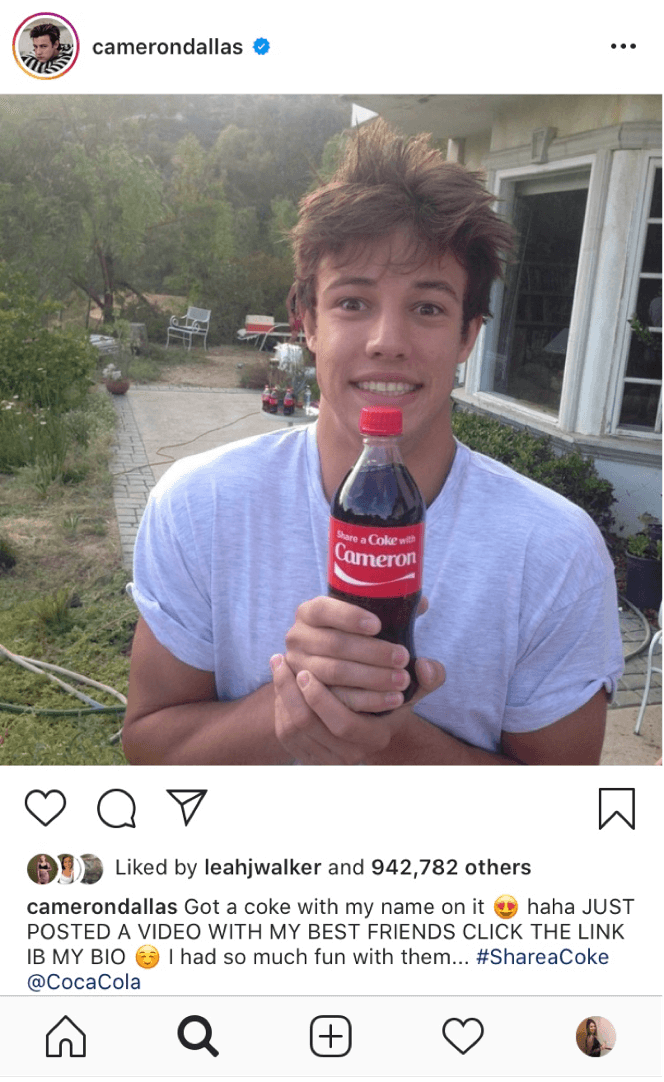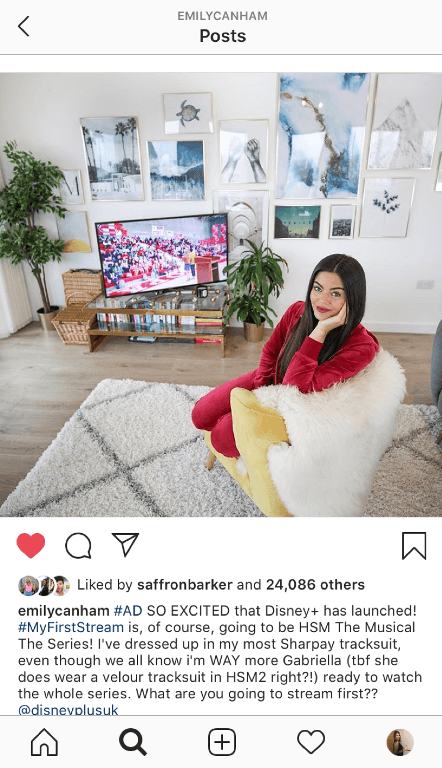Influencer Marketing

The new trend in the marketing industry, influencer marketing. Over the past decade, as technology advanced and iPhones became the most essential item you could ever need, social media grew to what it is today. Nowadays, the majority of people can’t live without social media, and can’t resist scrolling for numerous hours of the day. This is how influencers came to be.
Social media influencers are just your regular people who have become celebrities online by creating and posting content on their social media platforms. In her article Influencer Marketing: How Message Value and Credibility Affect Consumer Trust of Branded Content on Social Media https://www.tandfonline.com/doi/full/10.1080/15252019.2018.1533501, Chen Lou explains that influencers tend to have some expertise in specific areas which they may base their social media pages around to create a niche, and gain a following that has more of a connection with their content.
Duncan Brown and Nick Hayes said that marketing through influencers means that companies can promote their message within an influencer’s market to increase their awareness within their target audience, in their book Influencer Marketing https://books.google.co.uk/books?hl=en&lr=&id=_IksBgAAQBAJ&oi=fnd&pg=PR3&dq=Brown,+D.+and+Hayes,+N.+(2008)%C2%A0Influencer+marketing%E2%80%AF:+who+really+influences+your+customers%3F%C2%A0Elsevier/Butterworth-Heinemann.&ots=WDPPXKq5Cp&sig=FqtuXf7vdUsPRMrNvD3YOXpH5uA&redir_esc=y#v=onepage&q&f=false. Influencers will then use the brands’ message on their social media platforms if it adds value to their advertisement and their community they have created.
For any business nowadays, it’s important to secure a place for their brand in both conventional and digital market places. Mamta Ranga and Deepti Sharma said in their article Influencer Marketing – A Marketing Tool in the age of Social Media https://pdfs.semanticscholar.org/13e7/35aa017d15e76a658821acb5baf71cf93deb.pdf that using influencers is such a vital new approach to marketing. If a business is able to identify people that have influence over their target audience, marketing through an influencer a great opportunity to raise awareness of their brand/product in a way that is direct and suits them.
Katie Hall, in her article The importance of Authenticity in Influencer Marketinghttps://www.business2community.com/marketing/importance-authenticity-influencer-marketing-01696695, said that brands can choose their influencers according to who they think will represent them the best, and this also means they can opt for more affordable influencers if needs be, rather than paying the expensive fees that may be required when signing one or more celebrity endorsers.
I am really intrigued by the rise of influencer marketing over the past decade and how successful this technique is for businesses when marketing. I conducted my own piece of research by creating a questionnaire that I posted online to find out about what people think about influencer marketing, if they think it is successful, and how effective they think it is as a marketing technique.
Most influencers will have a niche target audience, and will have things in common with their following. The content that influencers post is normally based around their own personal interests and hobbies, which then allows the influencer to build a strong relationship with their followers. This is so important in a business’ perspective because it’s more likely that the audience will accept or trust the influencer if they collaborate with brands that match their image and personal expertise.
After conducting my research, I found that 67% said that they feel it is important that influencers have expertise in the product or service they are advertising and also that the adverts match them (such as their personality, what they post on their social media and/or their hobbies). People tend to follow influencers on social media that they have things in common with as they want to see content that they can relate to. For a follower, it will be important for ads to also match this otherwise there will be a loss of trust in the influencer and the influencers image may get lost behind the random advertisements.
Influencers regularly use either blogs, personal social media accounts or posting as a guest on a brand’s site as their go-to marketing techniques. In my research, most people said that they think the best platform for influencer marketing is Instagram. The influencer and brand would usually come together to decide the best marketing technique so that they have the best positive impact on the overall goal of the ad.
I was looking at one of the first ways that influencer marketing was used, back in the summer of 2014. Coca-Cola launched their ‘Share a coke’ campaign, where they printed names on all their bottles of Coke over the summer. Coca-Cola reached out to influencers by sending them their own personalised bottles in exchange for a post on social media, or a chat about it on their YouTube video. At the time, it wasn’t aimed at any particular type of influencer with any specific following; influencers across all different areas were sent a package as the campaign was aimed at the entire population.

(Teenage influencer Cameron Dallas posed on his Instagram feed with his personalised bottle using the hashtag #ShareACoke)
The campaign took off and people became more aware about it as they watched their favourite YouTuber talk about it, or posts on Instagram. I believe this is where businesses really saw how successful this technique of marketing was, and ever since then, everyone in the marketing industry has since jumped on the bandwagon.
However, as the trend of using influencers for marketing became increasingly more popular, there are now strict rules and regulations for influencers when advertising and collaborating. They MUST declare on their post or during their video that they are being paid for showing or talking about a product or service by using #AD or ‘Paid Promotion’, or that it was #gifted by the brand if they didn’t have to pay for it themselves.

(Youtuber and influencer Emily Canham uses the regulations on her recent Instagram adverts)
Some followers would feel disheartened or mislead if they found out that influencers were being paid for promoting things and they hadn’t been told; some followers may even believe that the influencer was lying purely to earn the money. I think this would be a lot more obvious if influencers were to advertise something that does not match their image or their regular content. I reckon this would probably result in a loss of trust and even a loss of following for the influencer. For influencer marketing to be successful, brands should only choose to work with influencers and vice versa, if the brand/product matches them and their feed. In the article Instafamous and social media influencer marketing by S. Venus Jin https://www.emerald.com/insight/content/doi/10.1108/MIP-09-2018-0375/full/html?casa_token=e57_p0c0gFYAAAAA:zwWccrwtj0cuz8B-9Z3fO4nr3pmlWndicWnHOpROstfQwj5zHuzgNt2x8ybNuFlLurJFfW1-lHjWqy01eVpNh1qqpQJlMq2cG5al-iWdXui7G91hyvC_ they said that consumers that are exposed to influencers’ brand posts show a more positive attitude to the endorsed brand because they perceive the source to be trustworthy.
I don’t think influencer marketing will be stopping anytime soon. In fact, I think it will only continue to grow, with some young adults now declaring that their career aspirations are to be an influencer. Is this for enjoyment? Or is it for the benefit of free gifts or money? I guess it will be different for everyone, and maybe we will never know the true intentions for influencers anymore. The new rules and regulations are definitely an asset to influencer marketing, ensuring the truth is always told. I wonder what happens with social media and influencer marketing in the next decade. Only time will tell I guess.




